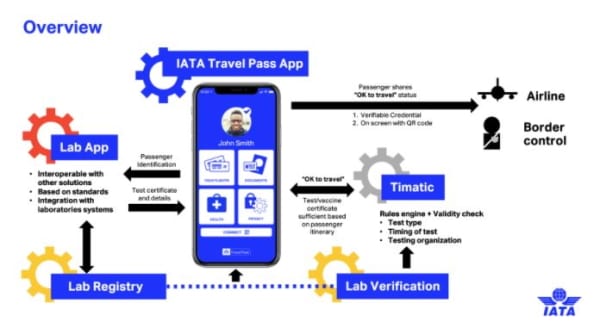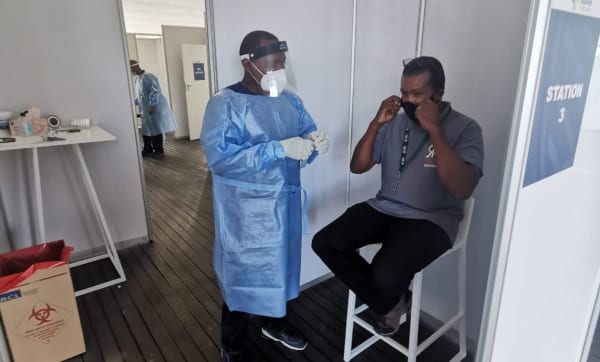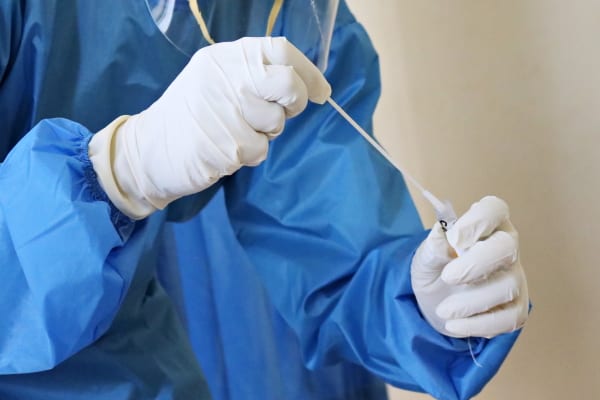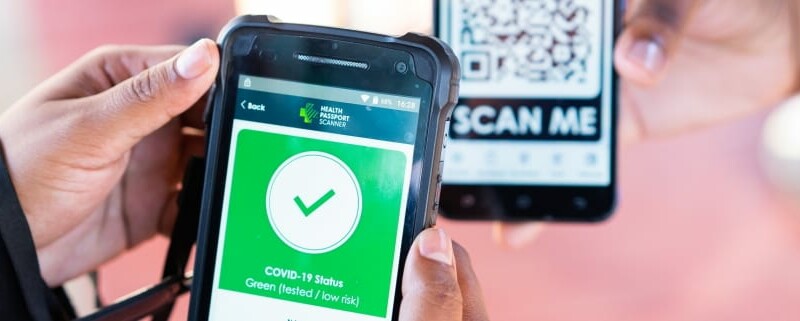As industries and governments scramble to find effective ways to limit the spread of Covid-19 while reopening economic activity, health passports have proven a hot topic and could play a key role in making events safer to attend. Proponents praise them as an efficient screening tool. However, critics have voiced concerns over the unintended consequences they could lead to. The Planner investigates.
What are health passports?
Also known as vaccine passports and health passes, health passports are essentially a record (paper or digital) that verifies information such as whether a person has been vaccinated against Covid-19, has tested negative for the virus and, in some cases, if they have had Covid-19 and therefore have some natural immunity against it. Having this information about an individual helps to assess the potential risk that they could transmit the virus, and so can be used to screen people before granting them access to a country, a flight, an event and more.
Digital records are harder to forge than paper documents and present a streamlined, touchless way to gather, store and share this data.
Increasingly the trend is for app-based digital health passports. The technology is available, and most people have a smartphone. Digital records are also harder to forge than paper documents and present a streamlined, touchless way to gather, store and share this data.
Who has them, how do they work?
Many countries, airlines, health organisations (including the WHO) and tech companies have started to develop health passports. IATA (International Air Transport Association) is making fast progress on its Travel Pass which will soon be piloted in Singapore and New Zealand.
The app includes a list of travel requirements per country, where tests can be done, as well as The Lab App which is “a secure, encrypted channel which enables laboratories to verify passenger’s identities and then send the results of Covid-19 tests, or proof of vaccination directly to passengers and stored on their mobile device”. The Travel Pass is linked to a person’s passport, enabling their Covid-19 immunity status to be shared with the relevant authorities. IATA is hoping that most countries and airlines will adopt the Travel Pass, therefore creating a standardised tool for international travel.

Overview of the IATA Travel Pass
Health Passport Worldwide app is another example, which was used by Big Concerts to screen attendees for its Recharge 2020 event in Cape Town. In this use case, rapid testing was conducted at registration. A person’s test results were sent to their app within 15 minutes of testing, and only those with a negative test result could enter the event. (Read more about this event here.)
A person’s test results were sent to their app within 15 minutes of testing, and only those with a negative test result could enter the event.
Health Passport Worldwide has since launched Health Passport South Africa, including a flagship Covid-19 testing centre at The Lookout Waterfront in Cape Town. The testing centre provides PCR and rapid antigen tests and can test 275 people every hour. This can be upscaled to test over 50 000 people a day using rapid antigen testing. The aim, says the company, is to “enable businesses, events, travel, hospitality and much more to safely reopen”. It adds that it can work with all official vaccinations and test types, and that a user’s privacy is fully protected.

A testing area at Recharge 2020
Justin Van Wyk, CEO of Big Concerts, says, “This was an important moment for the events industry which has been devastated by the pandemic. The Health Passport Worldwide technology platform enabled this event to proceed with the highest levels of risk mitigation, demonstrating the way forward for live events globally.”
The potential pitfalls
This approach has many merits to it, as already touched on. However, as with most new things, there are some concerns that have been voiced and which need to be addressed. For example:
Israel is talking about creating Green Passes which will reveal a person’s vaccination status or if they have been infected with the virus. A Green Pass would then allow access to travel, restaurants, entertainment, events and more. The Health Minister Yuli Edelstein was reported to have said anyone unwilling or unable to get a Green Pass will be “left behind”. Yet some people have ethical and religious objections to the vaccine and would therefore be indefinitely excluded from access to these things.
People could be incentivised to catch Covid-19 if having had the illness will allow them to travel and attend events more freely, which could lead to increases in transmission rates. At the same time, not enough is known about immunity transferred from catching the virus, with reports of people being reinfected. Currently the Centre for Disease Control and Prevention in America is recommending people who have had Covid-19 to still receive the double dose of the Pfizer and Moderna vaccines.
People could be incentivised to catch Covid-19 if having had the illness will allow them to travel and attend events more freely.
Access to vaccinations and testing is limited in some countries and regions, which could unfairly discriminate against the people who live and work there. For example, it is unlikely that low-risk South Africans will have access to the vaccine any time soon. (Business Tech reports that, at our country’s current vaccination rate, it will take 18 years to reach the target of vaccinating 67% of the population.)

A laboratory worker takes a Covid-19 swab test
Negative test results have a short shelf life and are not 100% reliable. Steven Adelman, Head of Adelman Law Group, PLLC, spoke at an Event MB The Future of the Event Industry event and suggests that, for events, “The best combination is to make everyone get a PCR test in advance, and then give them a rapid test immediately upon arriving onsite. It’s not perfect, but between the two tests you’re covering most infection scenarios.” However, this also has a cost implication. Health Passport South Africa charges R350 for a rapid antigen test and R850 for a PCR test, which is a hefty add-on to an event’s ticket price.
Security issues have been voiced over how this information is collected and stored, although the response from app developers is that their platforms are secure, and a user’s privacy is respected.
Not everyone has a smartphone which could make app-based health passports inaccessible to some. In this scenario, event organisers would need a Plan B to accommodate such instances.
What does this all mean for the events industry?
Senthil Gopinath, CEO of ICCA (International Congress and Convention Association), says, “At ICCA, we’re open to innovative, ethical, and inclusive solutions for restarting the meetings industry. We advocate the importance of re-opening our industry and sustaining our community. We view health passports as one potential method to help people gather face-to-face again.”
“It is also important to consider the different needs of business events travellers and not try to apply a one-size-fits all approach.”
However, he adds, “It is vital to ensure equitable access to Covid-19 vaccines so that destinations globally can safely reopen. It is also important to consider the different needs of business events travellers and not try to apply a one-size-fits all approach. For example, the business events attendees need to be categorized and given priority since they are identifiable due to pre-registered participation at events.”
While the advent of health passports could be a solution for safely hosting live events, this must clearly be bolstered by several measures to be viable and potentially assist in the recovery of the events industry.
READ: SA Events Council highlights the lost benefits of not being able to host events





